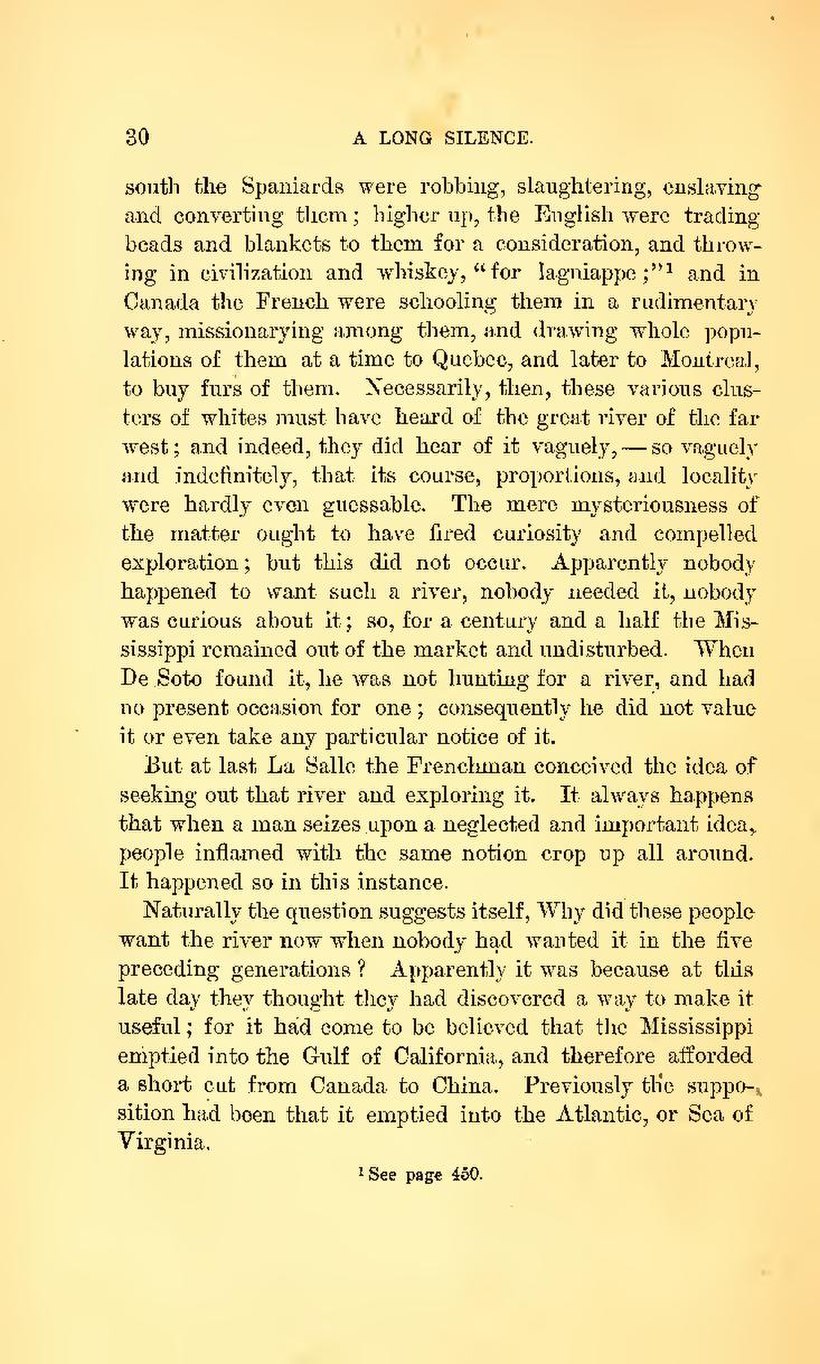south the Spaniards were robbing, slaughtering, enslaving and converting them higher up, the English were trading beads and blankets to them for a consideration, and throwing in civilization and whiskey, "for lagniappe;"[1] and in Canada the French were schooling them in a rudimentary way, missionarying among them, and drawing whole populations of them at a time to Quebec, and later to Montreal, to buy furs of them. Necessarily, then, these various clusters of whites must have heard of the great river of the far west; and indeed, they did hear of it vaguely,—so vaguely and indefinitely, that its course, proportions, and locality were hardly even guessable. The mere mysteriousness of the matter ought to have fired curiosity and compelled exploration; but this did not occur. Apparently nobody happened to want such a river, nobody needed it, nobody was curious about it; so, for a century and a half the Mississippi remained out of the market and undisturbed. When De Soto found it, he was not hunting for a river, and had no present occasion for one; consequently he did not value it or even take any particular notice of it.
But at last La Salle the Frenchman conceived the idea of seeking out that river and exploring it. It always happens that when a man seizes upon a neglected and important idea, people inflamed with the same notion crop up all around. It happened so in this instance.
Naturally the question suggests itself, Why did these people want the river now when nobody had wanted it in the five preceding generations? Apparently it was because at this late day they thought they had discovered a way to make it useful; for it had come to be believed that the Mississippi emptied into the Gulf of California, and therefore afforded a short cut from Canada to China. Previously the supposition had been that it emptied into the Atlantic, or Sea of Virginia.
- ↑ See page 450.
